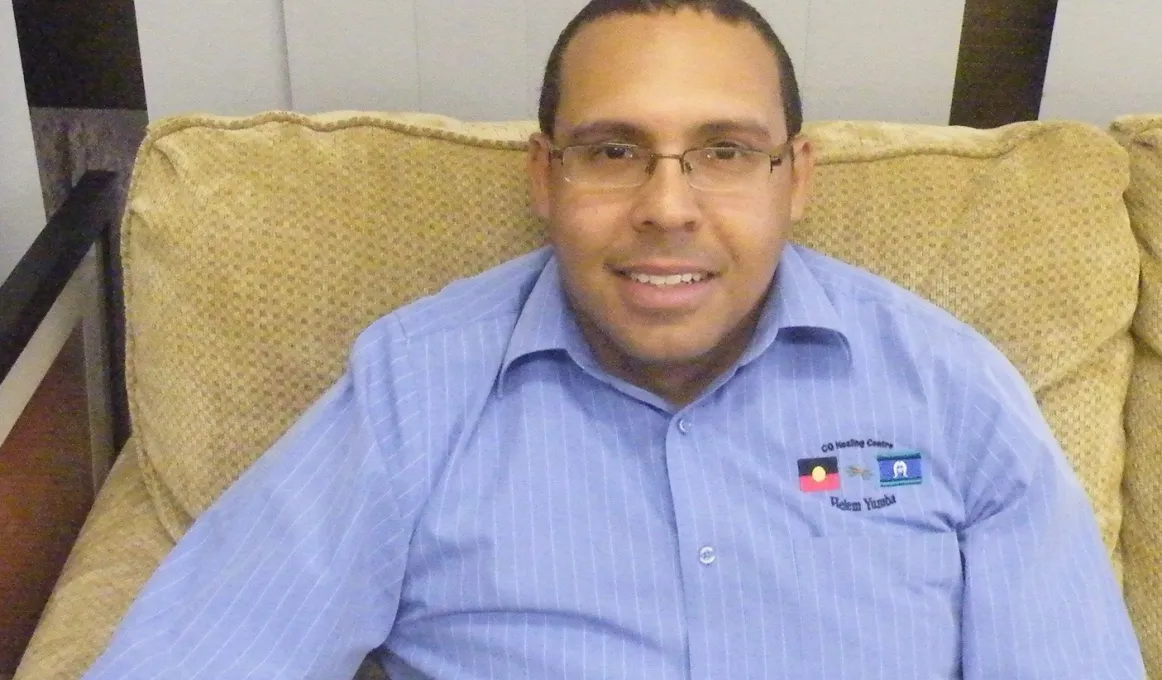Behaviour change program reconnects families

One 26 year old man’s struggles with violent behaviour and substance abuse cost him the custody of his children, and landed him in the courts on more than one occasion. Aaron (not his real name) is now walking the hard road to healing the hurt he has done to himself and his loved ones, through the support of the Central Queensland (CQ) Healing Centre - Helem Yumba, and the Gatharr Weyebe Banabe Program.
One 26 year old man’s struggles with violent behaviour and substance abuse cost him the custody of his children, and landed him in the courts on more than one occasion.
Aaron (not his real name) is now walking the hard road to healing the hurt he has done to himself and his loved ones, through the support of the Central Queensland (CQ) Healing Centre - Helem Yumba, and the Gatharr Weyebe Banabe Program.
His story was featured recently in the Closing the Gap: Prime Minister’s Report 2013.
The CQ Healing Centre - Helem Yumba, is a community organisation in Rockhampton, Queensland, which has developed a close and respectful relationship with local traditional owners, elders and many of the community’s families.
Gatharr Weyebe Banabe means “Aboriginal man’s life change” in Darumbal language. The program is funded through the Australian Government’s Indigenous Family Safety Program.
The Gatharr Weyebe Banabe program is built on culturally appropriate and respectful engagement practices. There is also an emphasis on helping clients address important needs such as housing, connections with family, financial situation, experienced racism and legal matters.
Male Behaviour Change program facilitator Edward Mosby said when Aaron was referred to the program following his second breach of his Domestic Violence Order, he was unemployed and showed signs of poor health. His accommodation was unstable, he had a record for being aggressive towards family and community members and had trouble following probationary orders.
“Like many men, Aaron didn’t like the idea of counselling or case management, and was unwilling to admit he had a problem,” Edward said.
Helem Yumba welcomed Aaron to several irregular yarning sessions. After a while, staff noticed he showed up more regularly and got more involved in his formal counselling sessions.
When he was ready, Aaron attended the program’s four-day Intensive Healing Retreat with several other Indigenous men who were facing similar family and domestic violence related matters in court.
Edward said that during those four days, Aaron developed his understanding about his violence and anger.
“He openly accepted responsibility for his actions and made a commitment to change his behaviour,” Edward said.
“By the end of the retreat, Aaron had developed his own ongoing healing pathway, involving regular formal counselling sessions, and working with his case manager to find a job and improve his relationships.
“Past experiences of grief and loss were a key factor in Aaron’s violent behaviour but he has put a stop to it and is on the road to kicking his substance abuse problem for good.
“Most importantly for Aaron, he is reconnecting with his children and other significant family members. His journey isn’t over, but he’s on the right path,” Edward said.
Find out more
The Australian Government’s Indigenous Family Safety Program is helping to create safer communities, a critical component of Closing the Gap.
Find out more about successful programs working to close the gap in Indigenous disadvantage in the Closing the Gap: Prime Minister’s Report 2013.